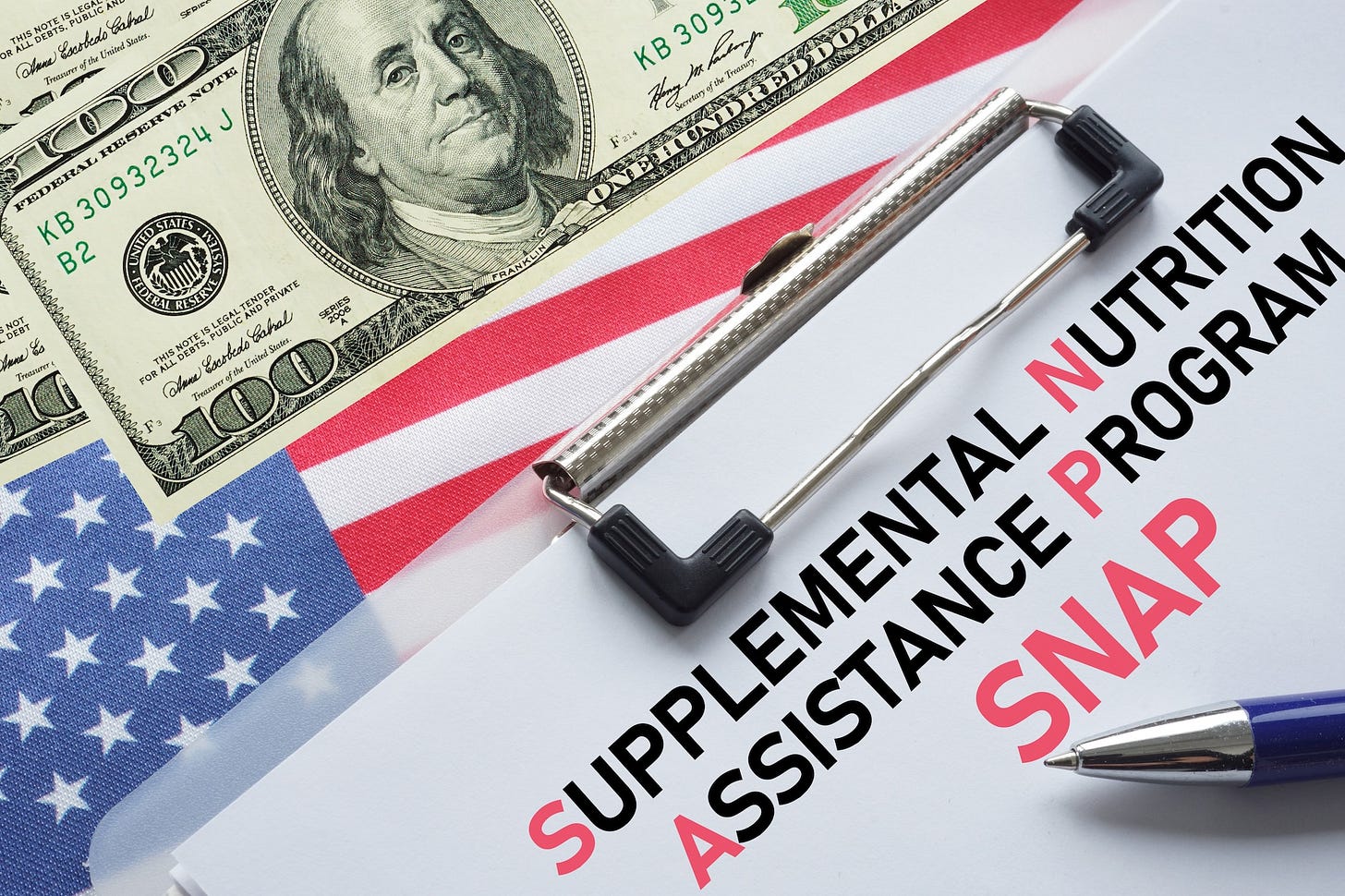Judges Order Trump to Feed America
The courts had to do what the president refused, keep 41 million people from going hungry.
For thirty-one days, the government has been shuttered while Donald Trump and his allies play chicken with the nation’s most basic lifeline, food. But late Friday, in an extraordinary twin rebuke, two federal judges ordered the administration to do what it refused to do voluntarily: use emergency reserve funds to keep the Supplemental Nutrition Assistance Program, or SNAP, running. The rulings, one out of Massachusetts and the other from Rhode Island, mean that the 41 million Americans who depend on food assistance, seniors, veterans, working parents, and children—will not see their benefits vanish overnight. They will still face delays, confusion, and bureaucratic cruelty, but not the immediate hunger Trump’s team was apparently comfortable inflicting.
In Boston, U.S. District Judge Indira Talwani issued a written opinion calling the USDA’s suspension of payments “unlawful,” ordering the agency to release contingency funds it claimed it couldn’t touch. In Providence, Judge John McConnell ruled from the bench that at least one of the emergency funds must be used immediately to pay for SNAP and demanded an update by Monday. Both judges were appointed by Barack Obama, something Senator Amy Klobuchar pointed out while accusing the administration of choosing “not to feed Americans in need, despite knowing it is legally required to do so.” The law, it turns out, still applies to everyone, even those who treat it as optional.
The Department of Agriculture had planned to halt benefits starting November 1, arguing it could not legally use its $5 billion contingency fund. That claim unraveled under scrutiny from twenty-five states and the District of Columbia, which sued, insisting not only that the funds could be used but that they must be. They also noted the existence of another $23 billion reserve the administration conveniently ignored. Trump’s lawyers said their hands were tied; the judges said they were lying. Talwani’s ruling requires the USDA to explain by Monday whether it will use both funds to fully cover November benefits or merely provide partial payments, a decision that will determine whether millions of households can afford groceries next week.
Across the country, food banks that have been operating on fumes for weeks exhaled in cautious relief. “Thousands of nonprofit food banks, pantries and other organizations across the country can avoid the impossible burden that would have resulted if SNAP benefits had been halted,” said Diane Yentel of the National Council of Nonprofits, which joined the Rhode Island case. Still, for many families, the victory will feel abstract. It takes days, sometimes more than a week, for states to load SNAP cards. The result is that even with the judges’ orders, millions of people will still wait longer for their benefits, juggling bills, rationing food, and wondering why feeding their children has become a political act.
At a press conference in Washington earlier in the day, before the rulings came down, Agriculture Secretary Brooke Rollins and House Speaker Mike Johnson were all smiles as they blamed Democrats for the crisis, accusing them of “disgusting dereliction of duty” for refusing to lift the Senate filibuster and pass Trump’s shutdown-ending demands. The irony of accusing others of neglect while presiding over an administration that literally shut down the nation’s food program was, as usual, lost on them. It’s unclear whether Trump’s team will appeal, though it seems almost certain; punishing the poor has always been more of a policy goal than a side effect.
In Louisville, Kentucky, a disabled Marine veteran named Brock Brooks stood in line at a food pantry, tears streaming down his face as he described the panic of not knowing whether his SNAP benefits would arrive. In Florida, a nursing student and mother of three named Kristle Johnson said her $994 monthly benefit, already stretched to the limit, might soon shrink even further. “Now I have to deal with someone who wants to get rid of everything I have to keep my family afloat until I can better myself,” she said, referring to Trump. Her words cut to the heart of the administration’s logic: that hunger is a motivational tool, poverty a moral failure, and the safety net a leash.
By Friday evening, advocates were calling the rulings a temporary reprieve, not a solution. The courts can compel action, but they cannot compel compassion. The Trump administration has made clear it views social welfare as political leverage, a bargaining chip to force policy concessions on healthcare and beyond. The judges’ decisions don’t end the shutdown or erase the damage already done, but they reassert something deeper: that even in an era when cruelty is public policy, the law still has the power to draw a line.
And if anyone still doubts that this cruelty is intentional, former Trump administration official Miles Taylor offered a blunt reminder of what it was like inside the machine:
“I was part of the internal Trump administration team trying to convince the president to end the shutdown in 2018–2019, for 35 days, before people went hungry, workers lost pay, and government services collapsed. Here’s what I learned: he doesn’t give a shit.”
That one line tells you everything you need to know. It’s not incompetence or ideology, it’s indifference weaponized. What Trump and his enablers are staging now is hostage-taking at a national scale. And once again, it’s the poorest, the hungriest, the most forgotten who get tied to the tracks.




No, he doesn't give a shit: there's the bond that links Trump and Melania. She really doesn't care.
Re the USDA: what legal justification could they possibly use to claim they can't use their emergency funding? because they're using it for themselves during the shutdown? because Trump instructed them not to use it as intended?
I think I’ve found out what it is to hate. No way around it.